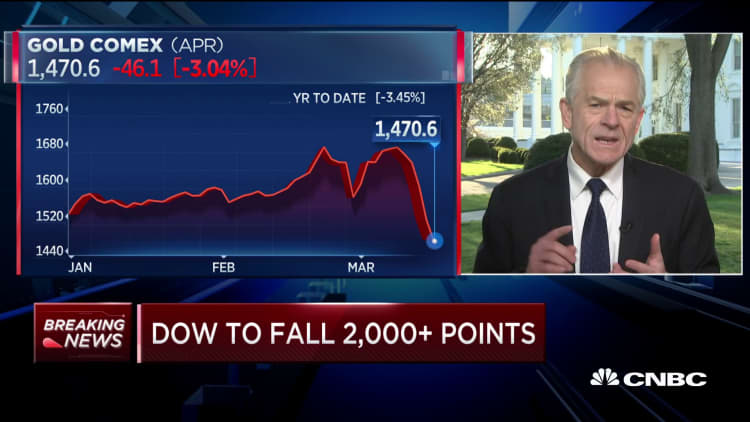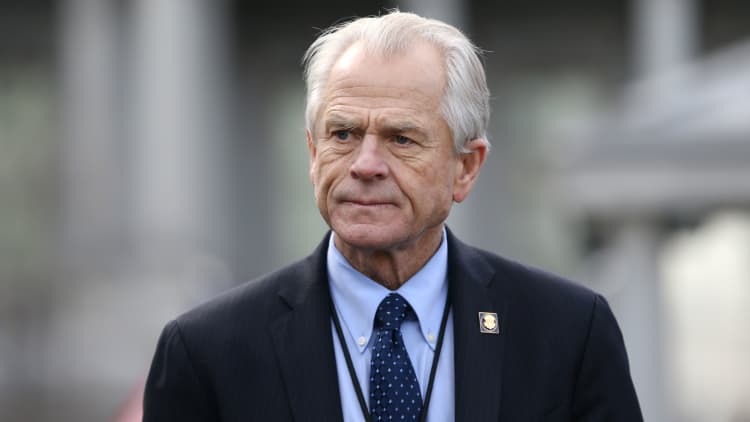
White House trade advisor Peter Navarro told CNBC on Monday that he's preparing an executive order that would help relocate medical supply chains from overseas to the U.S.
Navarro's proposal comes as Berlin said it's trying to stop Washington from persuading a German company seeking a coronavirus vaccine to move its research to the U.S.
German government sources told Reuters on Sunday the Trump administration was looking into how it could gain access to a potential vaccine being developed by a German firm, CureVac.
Navarro, in a "Squawk Box" interview, brushed off a question about the administration's reported overtures toward CureVac and instead spoke about the general need to manufacture more medical equipment and supplies in the U.S.
"What I can speak to is this broader, interesting issue of how dependent the United States of America is on the global supply chain, not just for its medicines but for its medical supplies and medical equipment," Navarro said.
"The essence of the order … is to bring all of that home so that we don't have to worry about foreign dependency," he said, adding that 70% of the ingredients used in advanced pharmaceuticals "comes from abroad."
The increased demand for medical face masks due to the coronavirus, for example, demonstrates the challenges of relying on foreign supply chains, Navarro argued.
The departments of Veterans Affairs, Health and Human Services and Defense buy significant amounts of medical equipment, Navarro noted.
"We need to have them buy that from American producers on American soil," he said.
Lawmakers such as Sens. Marsha Blackburn, R-Tenn., and Bob Menendez, D-N.J., also have raised concerns about pharmaceuticals being manufactured outside the U.S. They introduced legislation last week that would dedicate $100 million to develop U.S. production of drugs.
Navarro also said that President Donald Trump's push for a payroll tax cut would provide enough stimulus to help Americans though the outbreak crisis.
Navarro has been championing a payroll tax cut as part of the fiscal response to the coronavirus, arguing in a recent "Fox News" op-ed that it would serve as a $800 billion economic stimulus.
On Capitol Hill, the GOP-controlled Senate has yet to schedule a vote on the nation's second emergency coronavirus bill, which passed the Democratic-controlled House last week.
The Federal Reserve on Sunday cut interest rates by 1% in an emergency move down to 2008 financial-crisis levels of 0% to 0.25%. In another action from the crisis-playbook, the Fed launched a $700 billion quantitative easing program. President Donald Trump said on Sunday he was "very happy" with the announcement, adding, "I think that people in the markets should be very thrilled."
However, investors were not thrilled. U.S. stock futures were "limit down" 5% on Monday morning. The exchange-traded funds that track the Dow Jones Industrial Average and S&P 500, which have no mechanisms to curb downside, were off more than 10%.

— CNBC's Lauren Hirsch and Reuters contributed to this report.


